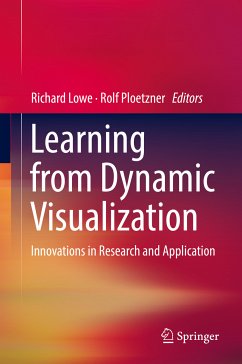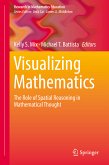The volume has recruited international leaders in the field to provide diverse perspectives on the dynamic visualizations and learning. It is the first comprehensive book on the topic that brings together contributions from both renowned researchersand expert practitioners. Rather than aiming to present a broad general overview of the field, it focuses on innovative work that is at the cutting edge.
As well as further developing and complementing existing approaches, the contributions emphasize fresh ideas that may challenge existing orthodoxies and point towards future directions for the field. They seek to stimulate further new developments in the design and use of dynamic visualizations for learning as well as the rigorous, systematic investigation of their educational effectiveness.
Dieser Download kann aus rechtlichen Gründen nur mit Rechnungsadresse in A, B, BG, CY, CZ, D, DK, EW, E, FIN, F, GR, HR, H, IRL, I, LT, L, LR, M, NL, PL, P, R, S, SLO, SK ausgeliefert werden.









